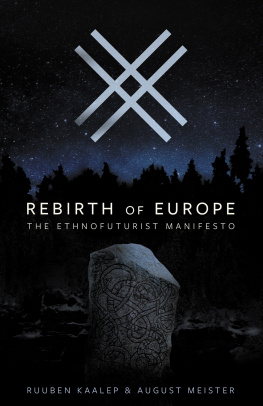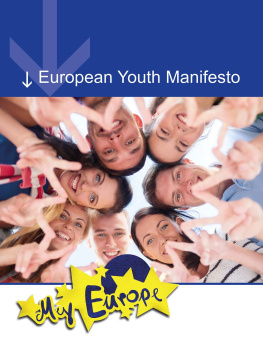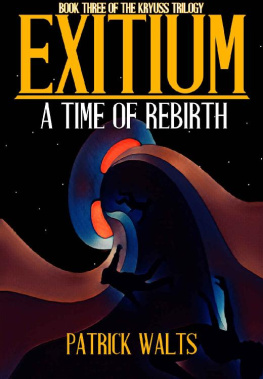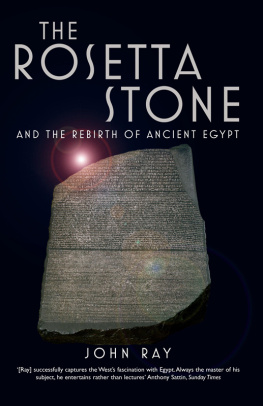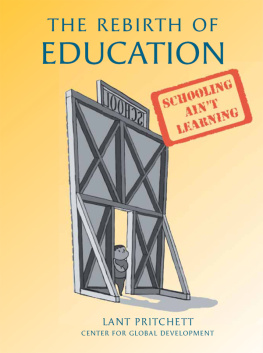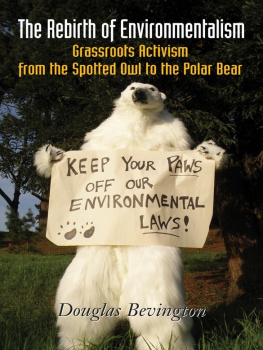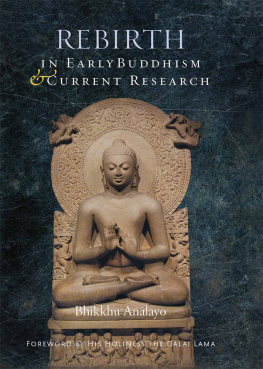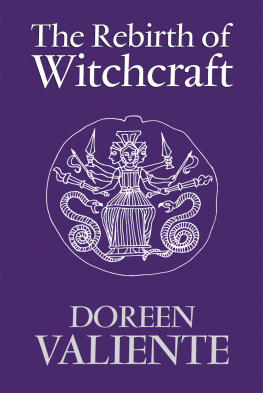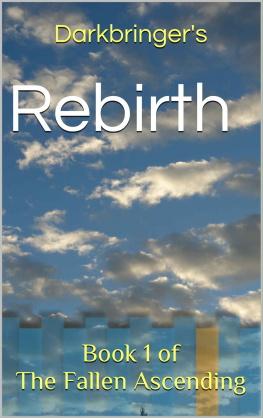Arktos
London 2020
Copyright 2020 by Arktos Media Ltd.
All rights reserved. No part of this book may be reproduced or utilised in any form or by any means (whether electronic or mechanical), including photocopying, recording or by any information storage and retrieval system, without permission in writing from the publisher.
Arktos.com | Facebook | Twitter | Instagram | Gab.ai | Minds.com | YouTube
ISBN
978-1-912975-53-2 (Softcover)
978-1-912975-54-9 (Ebook)
Editing
Constantin von Hoffmeister
Cover and Layout
Tor Westman
Introduction
I n the late 1980s, events that would soon have a profound impact on world history took place in the Baltic countriesEstonia, Latvia and Lithuania. Since World War II, these countries had been under Communist occupation. The Marxist regime saw any expression of ethnonationalism as a threat to its existence. In addition to violent repressions, it used tools of mass brainwashing in order to establish its doctrine forever in the collective consciousness of the peoples under its rule. Millions of immigrants from the vast Soviet empire had arrived in the Baltic countriesa process intended to replace the ethnic Estonians, Latvians and Lithuanians in their native lands. By the 1980s, it seemed that the resistance to the occupation had been in vain and the native peoples of the Baltics were destined for extinction.
But unseen to the occupiers eye, significant metapolitical work had taken place over the course of many decades. Dozens of poets, writers, artists, philosophers and dissidents in the Baltics conspired to preserve and renew the ethnic consciousness of their peoples, despite the apparent lack of any freedom to do so. This enabled them to seize the moment when the Soviet system began to collapse due to its own inconsistencies, which were hard-coded into its anti-organic nature. In that moment, the Baltic countries erupted in a massive outbreak of ethnonationalism, which became known as the Singing Revolution. This essentially Ethnofuturistic revolution kick-started protests everywhere in the Soviet Union and Eastern Europe, leading to the complete collapse of one of the two totalitarian ideologies that had ruled the globe since the end of World War II.
We believe that in a similar way, an Ethnofuturistic revolution can end the rule of liberalism, both in Europe and globally. This book is being written in a time when Europe is facing one of the greatest crises in its history. All revolutions from 1789 through 1917 to 1968 seem to have brought us to this point, where the ruling ideology denies our ancient ethnic spirit and threatens to replace Europeans biologically through mass immigration. And yet we do not suggest turning back time or reversing history, for we see a rebirth as the ultimate end goal and conclusion of this chaotic process. This crisis is not to be reversed, but to be overcome. In fact, if we start looking at the history of the world in the manner our ancestors would have, which is to say, organically, we discover that the decline of the West has been the one necessary precondition for the rebirth of Europe.
Who will bring about the rebirth?
It will be our generation. We all carry the crisis within us. It is both personal and global. Liberalism offers us sold-out homelands, broken communities and a stolen future. We do not accept this offer. The struggle begins with ourselves. The men of our generation want to be someonenot a part of the masses, not mere consumers. But this naturally leads to the following task: to be participants in this great cultural and historic struggle over the fate of Europe. And from mass-men we can rise to become something entirely differentfounders. The foundations that we are creating are for the overcoming of the crisis of Europe in an opposite directionthat of Rebirth.
This is a sacred task. Victory in this metapolitical field is more important than in any that results in parliamentary coalition changes. Only dedicated activists who are organising people with similar values can bring victory. This is why it is essential to study the deepest foundations of this crisis, to create an interpretation of reality and from thisa vision of the future. Our time, our continentthis task is not just intellectual. It has to be aimed at the problems of today, the difficulties faced by our society on all of its levels. A determined minority with a vision, possessed by a spirit that would always be dynamic and on the attackcontrasted with the inertia and half-measures of the traditional conservatives that have brought us this far.
The concept of Ethnofuturism was born in Estonia during the Singing Revolution. It was first envisioned as a cultural strategy that would revitalise the ethnic consciousness of Finno-Ugrians in spite of, and even using the means provided by, postmodernity. We, however, will add a political dimension to the concept. That means, we emphasise ethnonationalisma special relationship of the person to his tribe and countryas the only meaningful opposition to globalism, and Futurism as it was manifested in Italy, both in its artistic freedom and youthful attitude.
Ethnofuturism provides transcendence of the seeming limitations of time. We reject the reduction of ethnicity to a fixed set of characteristics: the essence of an ethnic spirit cannot be defined, it can only be perceived by being one with it. In this way, the ethnic spirit always remains, because it defines cultural development and not the other way around. The essence of Ethnofuturism is also captured by the slogan The ancient time will not come back, it will go on. In many ways, we promote a rediscovery of ancient tribal mentality and spirituality, which in no way stand in conflict with modern technology. Advances such as biotechnology, nanotechnology and artificial intelligence will force man to return to a mythical understanding of the world. We will be one step ahead in coping with this new world if we manage to retain an archaic worldview and a connection to our ancestral traditions.
Our main concern is the European people and not so much Western Civilisation. Western Civilisation as a cultural identity is a relatively recent phenomenon. It is a product of a much longer European evolutionary process; this in turn was brought about by our European bioculture, which is much more ancient and common to all European peoples. Baltic, Finno-Ugric, Germanic and Slavic peoples are related with roots that reach back tens of thousands of years into the past. Ethnicity or bioculture is the most fundamental element of Ethnofuturism. Civilisation, however, is downstream; it is a product of the former and depends on it.
The deep crisis of our culturethe nihilistic and destructive tendencies of the last centuriesare overshadowed by an even more dangerous crisis of immigration, which means the ethnic transformation of Europe into a conflict zone where European natives are regular victims. The European Muslim community is becoming larger and more self-confident. The conflict intensifies each yearsometimes each day; it required only a decade to go from unrest in the suburban areas to mass killings in the centre of Paris and regular slaughters of innocent Europeans on the streets of our cities. But after another decade the scale of conflicts will make one forget the problems of today. Just as at the decline of the Western Roman Empire, barbarians who were kindly welcomed as refugees sacked Rome itselftoday it is Paris, Cologne and Brussels that stand on the brink. If liberals succeed in imposing multiculturalism on the rest of the European Union, tomorrow it will be Riga, Tallinn and Warsaw.



